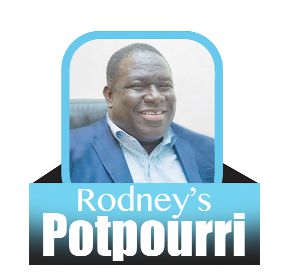On the occasion of the Eid ul-Fitr, let me tell you about my friend Ismaila in Kumasi who I prefer to call Alhaji, even though he has never set foot in Mecca. But who cares? For many Ghanaians, any Muslim man is Alhaji and a Muslim woman is Hajia. It is as simple as that.
Friendship
In our dealings over the decade or so we have been friends, the fact that we subscribe to different religious faiths has never been in issue or even apparent — not because either of us prefers to skirt around the subject or even avoid it, but it simply is not an issue and that religiousdifference does not define our friendship.
He once jokingly invited me to convert to Islam, remarking that I would look good as an Alhaji. He even reminded me I could marry up to four wives, as if to bait me.
I mentioned that I would certainly have issues with dropping my pork and beer consumption habits, praying five times a day, as well as the whole business around fasting. We laughed heartily over this — he nursing a soft drink and I a cold beer. I told him that if I ever considered converting, I would adopt the name ‘Abdul Karim’. He beamed.
Whenever I am in Kumasi, I make it a point to visit him at his shop in Adum, and occasionally, we would pop over to one of the fufu joints in the city for lunch. His two wives, both of whom I call Hajia, remain dear to me. His late father, a ‘proper’ Alhaji, who I called ‘Senior Alhaji’ treated me like a son, as does his mother, a ‘proper’ Hajia. For my friend, a visit to Accra without touching base with me is tantamount to ‘haram’.
At Christmas, Alhaji would get in fully on the act, joining the merry-making and everything the season has to offer, bar attending the watch night services.
Bridging the divide
I tell the story of my friendship with Alhaji to drive home a wider point, which many would identify with — that in this country, friendships across the religious divide are quite commonplace.
This is particularly evident in cosmopolitan places like Accra and Kumasi, where many Christians and Muslims have grown up and attended school with their friends from the other side of the religious divide, and do not see religious differences in their dealings. I am quite proud to count among my close friends quite a number of Muslims. Again, religion does not even feature on the menu of our engagements.
Of course, it would be utterly naive to pretend that all is glossy in this department. Issues such as the ban on fasting in some Christian mission schools during Ramadan, the near volatile situation a few years ago following Rev. OwusuBempah’s public ‘prophecy’ about the venerable National Chief Imam, Sheikh Osman Nuhu Sharubutu, violent skirmishes between Christian and Muslim youths in various parts of the country over the years, and regular clashes between adherents of African traditional religion and Christians over the annual ban on noise in Accra, among others, have given rise to some tensions which have largely been contained.
In the face of all this, we seem as a nation to have done quite well in ensuring that these flashpoints do not build up in a dangerous way to mar the inter-faith relationships we enjoy. We must jealously guard against complacency in this department.
Some high-profile optics have helped, including the highly publicised visit by the National Chief Imam to the Christ the King Catholic Church in April 2019 and immediate past Vice President Dr. Bawumia’s several visits to various churches over the past few years.
Just last week, President John Mahama hosted an ’iftar’ for Muslim leaders and some members of the diplomatic corps to break their day’s fast at the Jubilee House. The Jubilee House iftar was introduced by former President Nana Addo Dankwa Akufo-Addo in 2017 and it has since been held every year, except in 2020 due to COVID-19 restrictions.
All of these publicised events, together with regular football matches across the country between Muslim and Christian youths and many others that take place below the radar in various communities, remind us that we are indeed one nation and that we have more in common than what sets us apart.
Nurturing a common purpose
Across Africa, several armed conflicts have had, and continue to have, religious undertones marrying other factors like ethnicity, political differences and economic deprivation to produce a deadly cocktail, resulting in political instability. South Sudan, Nigeria, Mali and Somalia are prime examples.
I believe that the state, beyond the brick and mortar of roads, schools and hospitals and all the other shiny indicators of ‘development’, must deliberately and constantly nurture the sense of common purpose and a set of values that enable a country to flourish and give meaning to material prosperity — irrigating the soul of the nation, if you like. Religious tolerance is key in this narrative.
To all my Muslim friends, I say ‘Barka da Sallah’ in celebration. May Allah accept your prayers and fasting over the past holy month of Ramadan and grant us all his mercy and blessing.
As I pound away at my laptop on Sunday evening, I glow and literally salivate over the prospect of storming Alhaji’s house on Monday afternoon to demand my few pounds of Sallahmeat, washed down with orange juice or sobolo.
After all, for the purposes of Eid, I too can claim to be an Alhaji, even if of the honourary, temporary variety.
Now, where is my jalabiya?
E-mail: rodboat@yahoo.com

